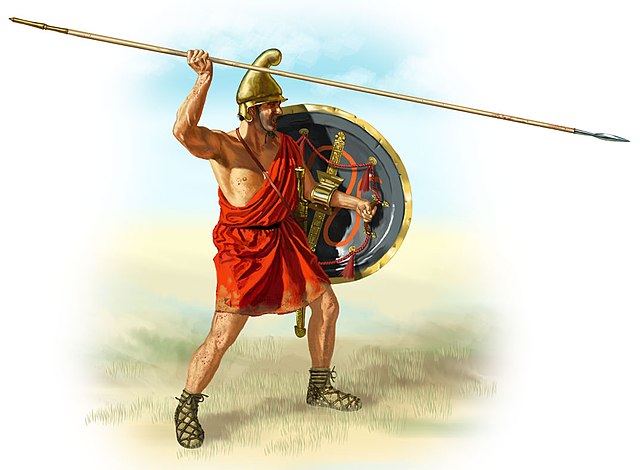Seleucus I Nicator was a Macedonian Greek general, officer and successor of Alexander the Great who went on to found the eponymous Seleucid Empire, led by the Seleucid dynasty. Initially a secondary player in the power struggles following Alexander's death, Seleucus rose to become the total ruler of Asia Minor, Syria, Mesopotamia, and the Iranian plateau, assuming the title of basileus (emperor). The Seleucid Empire was one of the major powers of the Hellenistic world, until it was overcome by the Roman Republic and Parthian Empire in the late second and early first centuries BC.
Bust of Seleucus I Nicator, Roman artwork of the Imperial era made in a Syrian workshop after a Hellenistic model.
Seleucus led the Royal Hypaspistai during Alexander's Persian campaign.
Ptolemy I Soter, an officer under Alexander the Great, was nominated as the satrap of Egypt. Ptolemy made Ptolemaic Egypt independent and proclaimed himself Basileus and Pharaoh in 305 BC.
Roman copy of a bronze statue of Seleucus found in Herculaneum (now located at the Naples National Archaeological Museum)
The Seleucid Empire was a Greek power in West Asia during the Hellenistic period. It was founded in 312 BC by the Macedonian general Seleucus I Nicator, following the division of the Macedonian Empire founded by Alexander the Great, and ruled by the Seleucid dynasty until its annexation by the Roman Republic under Pompey in 63 BC.
Seleucid Empire
"Chandra Gupta Maurya entertains his bride from Babylon": a conjectural interpretation of the "marriage agreement" between the Seleucids and Chandragupta Maurya, related by Appian
Coin of Seleucus I Nicator
In Bactria, the satrap Diodotus asserted independence to form the Greco-Bactrian kingdom c. 245 BC.








